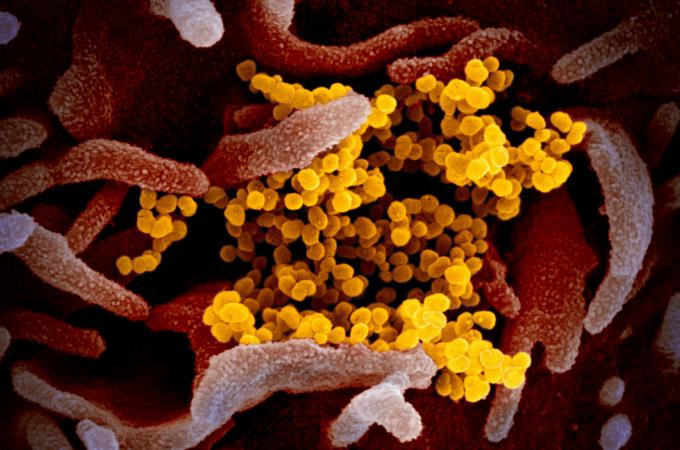Spiritual lessons from the pandemic
The COVID-19 pandemic has left many of us with a great deal of uncertainty: uncertainty about how contagious the virus is and about the best way to treat it; uncertainty about how long our personal immunity will last after we get infected and whether a vaccine will ever be developed; uncertainty about the future of the economy and whether jobs will still be there for the 40 million newly unemployed; uncertainty about how long the public quarantines should continue; uncertainty about what will happen to ourselves, our businesses, our families and our friends.
In the midst of so much uncertainty, we naturally look for something firm to hold onto. Cataclysmic disruptors -- whether an outbreak of war, widespread riots and looting, or a new coronavirus -- humble us and remind us how we cannot guarantee our own future.
Yet, we instinctively yearn for a way to assure and secure that future for ourselves and for our children. Where should we turn for safety?
Maybe we can take a cue from our financial institutions. When uncertainty becomes too high, and lenders realize a potential borrower is at high risk of default, they can sometimes turn to a higher authority, like the federal government, to "guarantee" a loan, as in the case of guaranteed student loans. Such loans offer a safety net and take away most risks for the lender.
What kind of higher authority should we be turning to in order to guarantee our future when we face so many uncertainties in life?
One lesson of the pandemic is not to place our hope in undeserving sources. While scientists may promise new treatments, and politicians may promise safety through contact-tracing and lockdowns, these measures are stopgaps in the face of our larger human questions.
Many centuries ago, a powerful king of the united monarchy of Israel and Judah mused about the false promise of earthly reassurances. Writing in Psalm 119, King David presciently declared, "Some trust in chariots or horses, but we in the name of the Lord. They will collapse and fall, but we shall hold and stand firm."
The answer to the uncertainties surrounding our human condition lies, precisely as David noted in his inimitable and direct style, in God himself. He alone knows and understands every event of history, from coronavirus pandemics to civil disturbances to economic collapses.
It's important for us to distinguish between true and false saviors. While a vaccine may limit the immediate threat from the coronavirus for us individually, death will still have its day and eventually lay its claim upon us. As natural as it may be for us to reach out for a vaccine to calm our preoccupations and restore predictability to our future, only God opens a real path for us beyond fear and beyond death. Our lives are on loan, and only he can guarantee the fulfillment of that loan in a destiny that lies beyond this troubled world.
Cardinal Robert Sarah summed it up well when he recently said: "This virus acted as a warning. In a matter of weeks, the great illusion of a material world that thought itself all-powerful seems to have collapsed.... A microscopic virus has brought this world to its knees ...
"We were promised to push the limits of human nature ever further by a triumphant science. We were told about artificial procreation, surrogate motherhood, transhumanism, enhanced humanity. We boasted of being a man of synthesis and a humanity that biotechnologies would make invincible and immortal. But here we are in a panic, confined by a virus about which we know almost nothing.
"Epidemic was an outdated, medieval word. It suddenly became our everyday life. I believe this epidemic has dispelled the smoke of illusion. The so-called all-powerful man appears in his raw reality. There he is naked. His weakness and vulnerability are glaring. Being confined to our homes will hopefully allow us to turn our attention back to the essentials, to rediscover the importance of our relationship with God."
We have an important opportunity to ponder these deeper lessons of the COVID-19 saga as it plays out in our midst. Rather than placing our hopes in the limited promises of this world, the pandemic reminds us of our vulnerability and our need for our true Savior, at every moment of our life.
- Father Tadeusz Pacholczyk, Ph.D. earned his doctorate in neuroscience from Yale and did post-doctoral work at Harvard. He is a priest of the diocese of Fall River and serves as the Director of Education at The National Catholic Bioethics Center in Philadelphia,



















